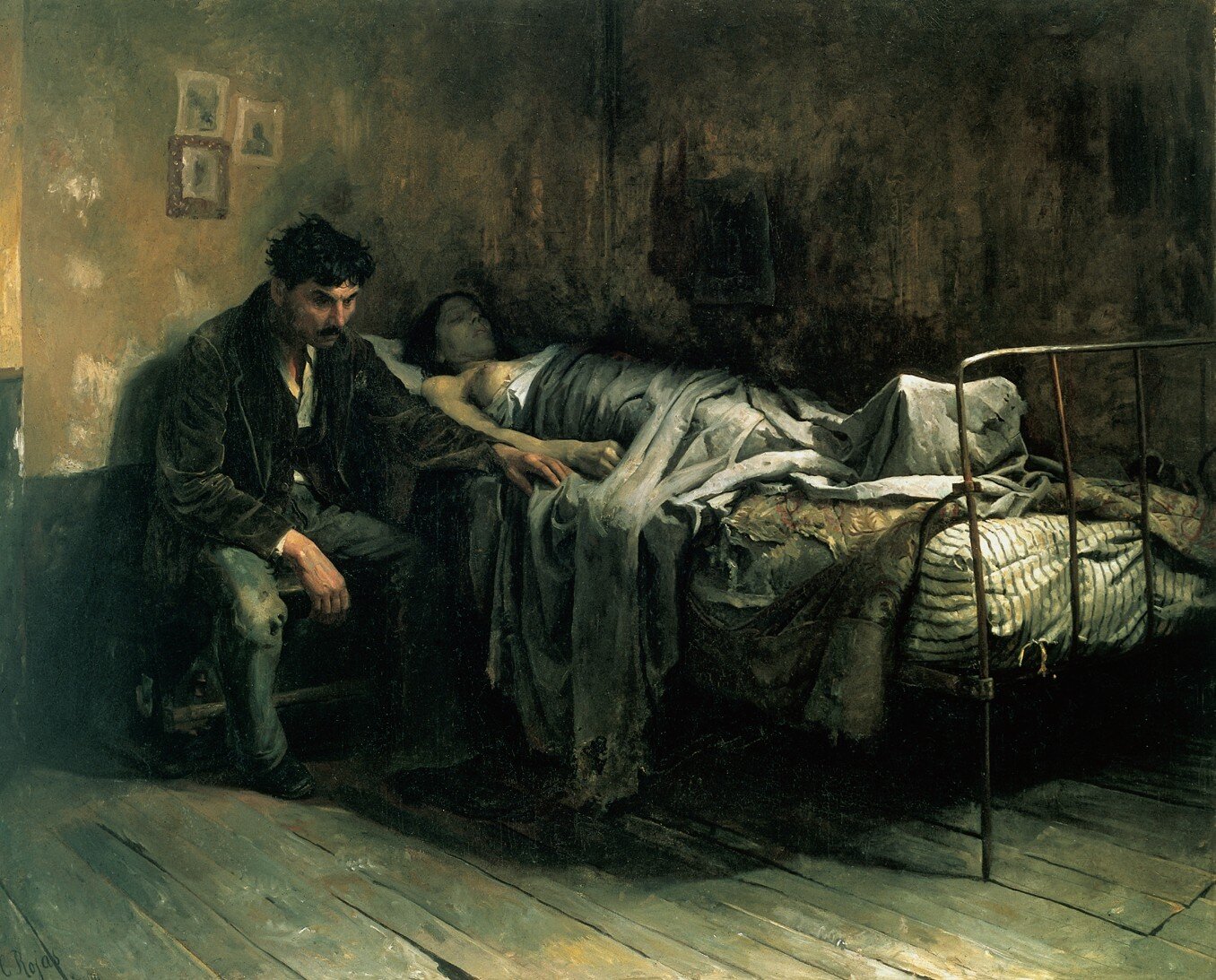Conspicuous Consumption

Let's talk about tuberculosis.
Let's talk about tuberculosis.
Tuberculosis is probably the disease which is least well-described in
Insults & Injuries, and I'm not afraid to admit it. Granted, you could walk into your local hospital's library and find entire textbooks dedicated solely to Parkinson's Disease, and I&I doesn't even begin to scratch the surface of what medical science knows about the flu, but TB is the disease where our team really left out a lot of information which could be relevant to a fantasy setting. As far as I&I describes, TB is primarily a disease of the lungs, and that's not false. Part of what makes TB so interesting medically, however, is that it's able to spread all over the body, and it has hugely different effects depending on what organs it affects. Your garden-variety heart attack mostly only affects your heart, but TB can affect your brain, our bones, and pretty much anything else.
In as many as one fifth of every creature who contracts TB, some form of extrapulmonary ("outside the lungs") symptom develops. The most famous form of extrapulmonary TB, historically, is tuberculous lymphadenitis, better known as scrofula. For most of human history, scrofula was a generic term which referred to an uncertain number of skin diseases, primarily because few people knew how to meaningfully differentiate different conditions. Over time, the word began to be applied more specifically to painless swellings in the neck. TB-causing bacteria get into the lymph nodes in the neck, which are already some of the nodes closest to the body's surface and most easily observed or felt when swollen, and cause them to swell to sometimes enormous proportions. Like leprosy, scrofula earned its place in history by virtue of being both common and highly visible, so that people learned to spot and identify it.
The manifestation of TB which I've always found the most weird is when TB gets into the bones, causing what's often known as Pott's disease. If TB gets into the spinal bones and the soft "intervertebral" disks between them, the disk dies and shrinks, and the vertebrae collapse onto each other. As you might imagine, this causes all sort of changes to a person's posture and no end to potential nerve and limb problems. I've always found this weird because it seems so unlike other forms of TB to me... which just goes to show how a single bacteria can have all sorts of different effects under certain conditions.
Even this description doesn't begin to do justice to the complexity of TB, since I haven't written anything about when TB spreads throughout the body ("miliary tuberculosis") or the lengthy and fascinating historical mythology surrounding TB. All of that is, as we sometimes read the in the medical literature, beyond the scope of this post. If you're at all curious, go ahead and read more. Websites like
Wikipedia and
Medscape eMedicine will get you started; where you finish depends entirely on your curiosity and free time.
All that being said, as I write this, the Skirmisher team is hard at work planning out our follow-up to Insults & Injuries, and TB is certainly a disease where we have room to do some expanding.
More than four years ago, Dr. Eris Lis, M.D., began writing a series of brilliant and informative posts on RPGs through the eyes of a medical professional, and this is the one that appeared here on November 17, 2013. Lis is a physician, gamer, and author of the Skirmisher Publishing LLC OGL sourcebook Insults & Injuries, which is also available for the Pathfinder RPG system.

